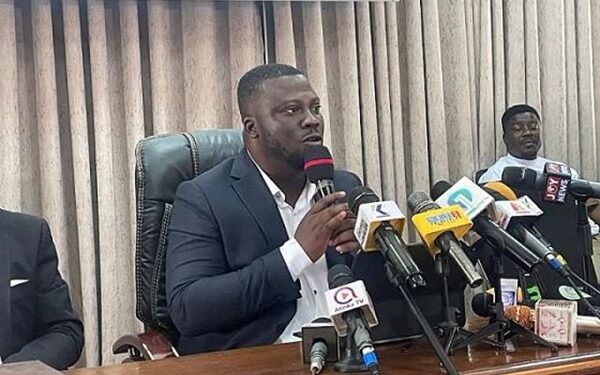As political tension brews in parts of the Ashanti Region over the impending appointment of Metropolitan, Municipal, and District Chief Executives (MMDCEs), governance expert Dr. Frederick Oduro has weighed in on the matter, emphasizing that the 1992 Constitution does not mandate the President to consult any individual or group before nominating MMDCEs.
Speaking in an interview on Tuesday, Dr. Oduro stressed, “There is no law under the 1992 Constitution that requires the President to consult before making an MMDCE appointment. Hence, no one can hold the President to ransom.”
His comments come amid threats of violence by some party supporters in the Ashanti Region, who insist that their preferred candidates must be appointed or they will disrupt the process. The tension has prompted the Ashanti Regional Minister, Dr. Frank Amoakohene, to issue a strong warning against individuals hiding behind party affiliations to incite chaos or destroy public property.
Dr. Oduro called for calm, particularly among supporters of the opposition National Democratic Congress (NDC), urging them to “allow the rule of law to work and channel their grievances through the appropriate channels, not through disorder.”
Tribal Sentiments and Local Expectations
Meanwhile, political scientist Dr. Samuel Afriyie of Kumasi Technical University has also added his voice to the debate, cautioning against the use of tribal dynamics in MMDCE appointments.
He noted that although political agitation is not uncommon in local governance processes, the rising tensions over MMDCE nominations are alarming.
“Tribal affiliations, if not managed carefully, can lead to deep divisions and chaos,” Dr. Afriyie warned. “These are local positions, and it’s understandable that communities want representatives from their own backgrounds. However, it is important that such expectations are balanced with the need for national cohesion.”
Dr. Afriyie further advised the President to consider consulting with traditional leaders, whom he described as key influencers in local governance. “Chiefs hold significant influence in their communities, and engaging them in the process can help ensure peace and acceptance,” he said.
Background: The Root of the Discontent
The rising tensions in the Ashanti Region stem from concerns that some communities are being sidelined in the selection process of MMDCEs. Reports indicate that groups of party supporters have issued threats, vowing to take matters into their own hands if their preferred candidates are not appointed.
In response, Regional Minister Dr. Frank Amoakohene issued a firm statement: “We will not tolerate anyone using party identity as a shield to disturb the peace. Law enforcement will deal with anyone found inciting violence or causing damage to public property.”

































